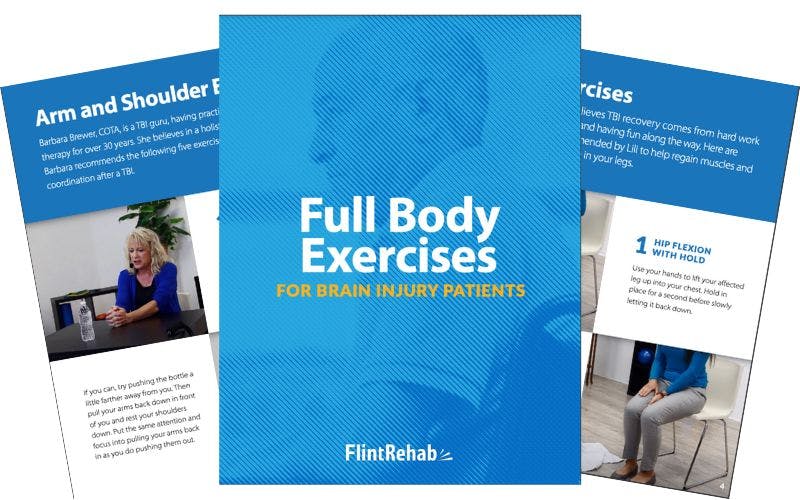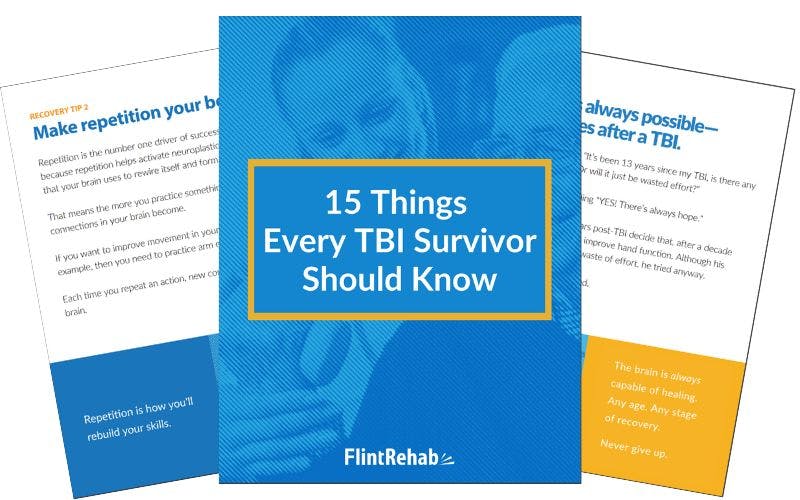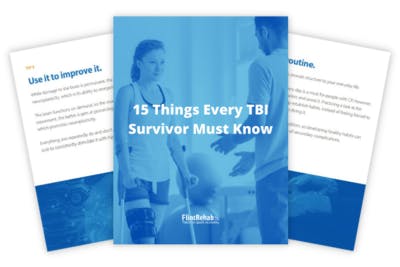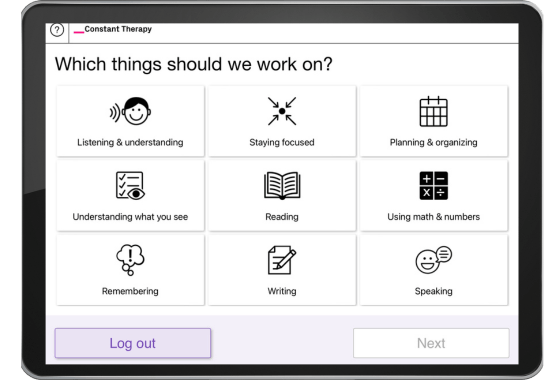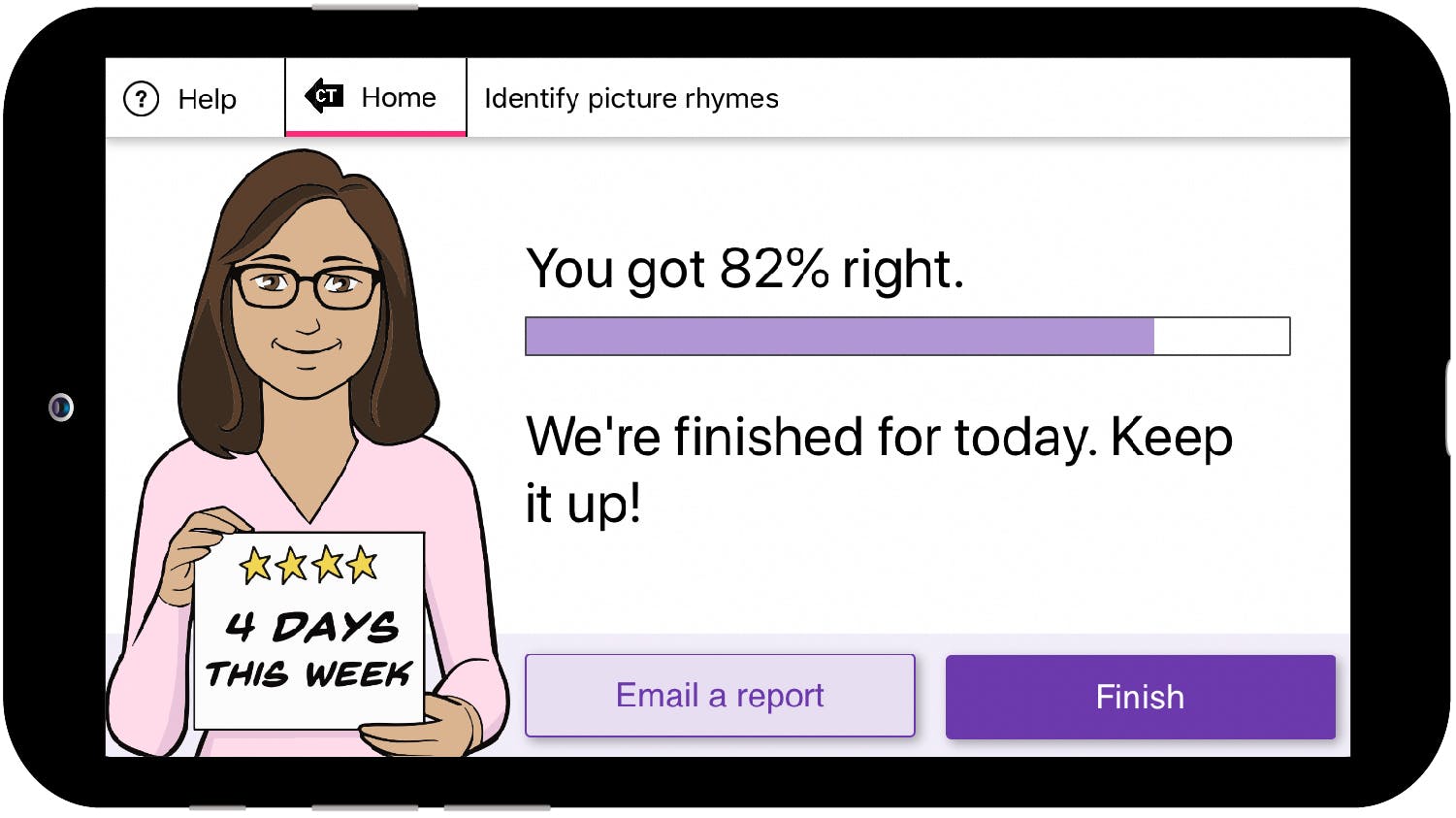Many survivors may experience ringing in the ear, or tinnitus, after head injury. The sound may be steady, or pulsating, and it may seem as if it is coming from afar but only you can hear it.
Tinnitus is a symptom of traumatic brain injury that can be caused by a variety of factors. Therefore, proper treatment for tinnitus depends on the root/underlying cause.
This article will discuss how auditory issues can occur, the potential causes of tinnitus after head injury, and possible management techniques to help you adjust.
What Is Tinnitus After Head Injury?
Approximately 53% of individuals who sustain a traumatic brain injury, especially those with a blast-induced brain injury, experience tinnitus. Tinnitus refers to the perception of sound within the ear when there is no outside noise and can occur in one ear or both in a constant or intermittent manner.
Tinnitus can also vary in intensity and pitch. The sound can typically be described as a high-pitched ringing noise, but can also include:
- Hissing
- Static
- Buzzing
- Whooshing
- Pulsing
- Dial tones
Survivors may experience feelings of aural fullness (pressure) and pain in or around the ear along with tinnitus. Although rare, some survivors may also hear music, known as musical ear syndrome or musical tinnitus.
Additionally, there are four common types of tinnitus survivors may experience. For instance, neurological tinnitus occurs when the nerve pathways that detect sound waves and send signals within the brain become damaged. Tinnitus caused by damage to bones or other structures related to the sensory system is known as somatic tinnitus.
Individuals may also experience subjective tinnitus, the most common type of tinnitus caused by excessive noise exposure, or objective tinnitus, which is a rarer form of tinnitus often caused by involuntary muscle contractions or vascular deformities.
Causes of Tinnitus After Head Injury
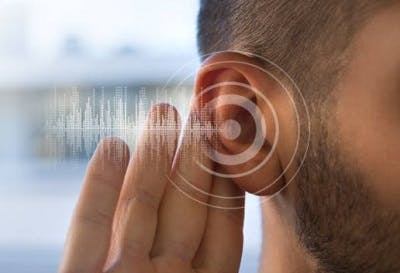
Ringing or buzzing in the ear can be caused by direct damage from a TBI or it can arise from other health conditions. For example, some of the most common causes of tinnitus after head injury can include:
1. Ossicular Chain Disruption
The ossicular chain is composed of three small bones in the middle ear that help transmit sound from the tympanic membrane to the cochlea of the inner ear. A head injury may disrupt the alignment between these bones, which may cause conductive hearing loss and tinnitus symptoms.
2. Temporomandibular Joint Disorder
Another type of somatic tinnitus can occur from damage to the temporomandibular joint (TMJ). The TMJ is located in front of the ears where the lower jaw connects to the skull, and it shares ligaments and nerve connections with the middle ear. Damage to the muscles or cartilage in the jaw after head injury can lead to tinnitus.
When tinnitus is caused by a TMJ disorder, survivors may also experience other symptoms such as: pain in the face or jaw, restricted jaw movement, and popping sounds when talking or chewing. Treating a temporomandibular joint disorder may help eliminate tinnitus.
3. Labyrinthine “Concussion”
Labyrinthine concussions occur when the inner ear becomes damaged from head injury. It can often lead to hearing loss and be accompanied by tinnitus. Bone fractures are usually not seen in labyrinthine concussions unlike other underlying causes of a head injury. Rather, the extreme force of the injury itself can damage the cochlea.
4. Meniere’s Syndrome
A head injury can lead to Meniere’s Syndrome, a condition that causes a build-up of pressure within the inner ear. The pressure causes the fluid in the ear to move excessively, which can affect your hearing, balance, and cause tinnitus symptoms. While there is no known cure for Meniere’s Syndrome, steroids and other medications may help alleviate the symptoms.
5. Sensorineural Hearing Loss
Sensorineural hearing loss occurs when there is damage to the hair-like cells in the inner ear that transfer sound or to the auditory nerve itself. While this may not cause complete hearing loss, it can affect certain frequencies. Sensorineural hearing loss is often accompanied by tinnitus.
Although the reason hearing loss may cause tinnitus is currently undergoing research, it is known that loss of certain sound frequencies can change how the brain processes sound. When the brain receives less external stimuli from a certain frequency, it adapts to this change. In fact, studies suggest that tinnitus may be a result of the brain filling in the missing sound frequencies it no longer receives.
Lastly, tinnitus can be a side effect of medications commonly used to treat TBI symptoms such as over-the-counter-medication (Aspirin), antidepressants (Prozac), or anti-anxiety benzodiazepines (Klonopin). However, tinnitus after head injury is usually a direct consequence of a TBI.
How to Treat Tinnitus After TBI

Tinnitus after head injury can be difficult to treat, and most cases are addressed by exploring the root cause. For example, with tinnitus caused by ossicular chain disruption, surgery may be needed. However, this is a highly invasive procedure therefore an accurate diagnosis and consultation with an auditory specialist is required.
When tinnitus is caused by changes in the way the brain processes sound, it can be more challenging to treat. Fortunately, there are many ways to manage the symptoms and reduce tinnitus.
One popular technique to help manage tinnitus is known as “masking” which involves wearing a small device that resembles a hearing aid. This device produces customized sounds that drown out the constant fuzz or the ringing noise from tinnitus.
Masking may help engage neuroplasticity and retrain the brain to tune out repetitive or unfamiliar sounds. While this technique can be efficient some survivors may require the use of a mask for long periods of time.
You can also use standard masking sounds such as music, nature sounds, white noise from a fan, or headphones to help manage tinnitus. While there is no one-size-fits-all cure, there are various sound therapy techniques you can try.
It’s important to note that tinnitus can often increase during periods of high stress. Therefore, finding ways to decrease anxiety and improve your mental health is essential. You can try cognitive-behavioral therapy, acupuncture, mindfulness meditation, and exercise to help lower stress levels and potentially reduce tinnitus symptoms.
Want 20 pages of brain injury recovery tips in PDF form? Click here to download our free ebook “15 Things Every TBI Survivor Must Know” (link opens a pop up for uninterrupted reading)
Overcoming Tinnitus After Head Injury
Tinnitus after head injury can occur due to direct impact from the trauma, affecting the way the brain processes sounds, or other underlying conditions. Nonetheless, persistent ringing in the ears can be uncomfortable and disruptive.
Fortunately, there are various ways tinnitus after head injury can be managed. First, it’s essential to consult with an audiologist in order to receive proper diagnosis and treatment. They may recommend masking or other types of sound therapy, depending on the severity.
We hope this article helped you understand how tinnitus after head injury can occur and how you can overcome it.


